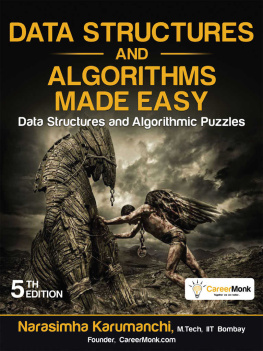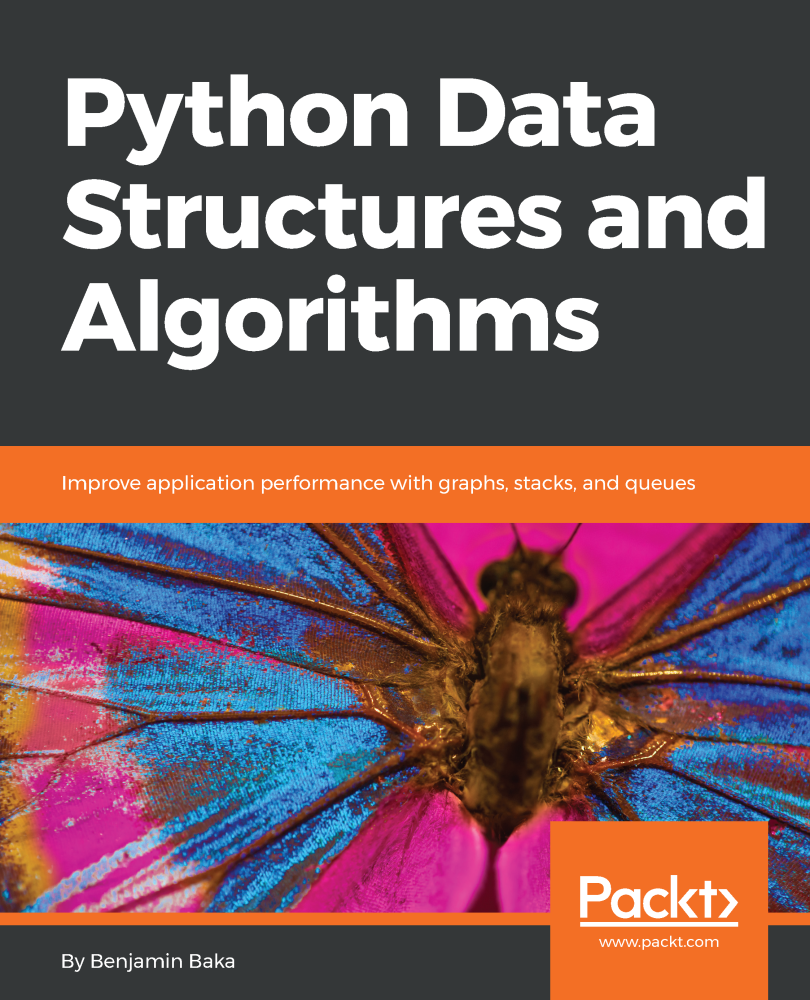Python Data Structures and Algorithms
Copyright 2017 Packt Publishing
All rights reserved. No part of this book may be reproduced, stored in a retrieval system, or transmitted in any form or by any means, without the prior written permission of the publisher, except in the case of brief quotations embedded in critical articles or reviews.
Every effort has been made in the preparation of this book to ensure the accuracy of the information presented. However, the information contained in this book is sold without warranty, either express or implied. Neither the author, nor Packt Publishing, and its dealers and distributors will be held liable for any damages caused or alleged to be caused directly or indirectly by this book.
Packt Publishing has endeavored to provide trademark information about all of the companies and products mentioned in this book by the appropriate use of capitals. However, Packt Publishing cannot guarantee the accuracy of this information.
First published: May 2017
Production reference: 1260517
Published by Packt Publishing Ltd.
Livery Place
35 Livery Street
Birmingham
B3 2PB, UK.
ISBN 978-1-78646-735-5
www.packtpub.com
Credits
Author Benjamin Baka | Copy Editor
Safis Editing |
Reviewer David Julian | Project Coordinator Vaidehi Sawant |
Commissioning Editor Kunal Parikh | Proofreader Safis Editing |
Acquisition Editor Denim Pinto | Indexer Tejal Daruwale Soni |
Content Development Editor Zeeyan Pinheiro | Graphics Abhinash Sahu |
Technical Editors Pavan Ramchandani Ketan Kamble | Production Coordinator Melwyn Dsa |
About the Author
Benjamin Baka works as a software developer and has over 10 years, experience in programming. He is a graduate of Kwame Nkrumah University of Science and Technology and a member of the Linux Accra User Group. Notable in his language toolset are C, C++, Java, Python, and Ruby. He has a huge interest in algorithms and finds them a good intellectual exercise.
He is a technology strategist and software engineer at mPedigree Network, weaving together a dizzying array of technologies in combating counterfeiting activities, empowering consumers in Ghana, Nigeria, and Kenya to name a few.
In his spare time, he enjoys playing the bass guitar and listening to silence. You can find him on his blog.
Many thanks to the team at Packt who have played a major part in bringing this book to
light. I would also like to thank David Julian, the reviewer on this book, for all the assistance he extended through diverse means in preparing this book.
I am forever indebted to Lorenzo E. Danielson and Guido Sohne for their immense help in ways I can never repay.
About the Reviewer
David Julian has over 30 years of experience as an IT educator and consultant.
He has worked on a diverse range of projects, including assisting with the design of a machine learning system used to optimize agricultural crop production in controlled environments and numerous backend web development and data analysis projects.
He has authored the book Designing Machine Learning Systems with Python and worked as a technical reviewer on Sebastian Raschkas book Python Machine Learning, both by Packt Publishing.
www.PacktPub.com
For support files and downloads related to your book, please visit www.PacktPub.com .
Did you know that Packt offers eBook versions of every book published, with PDF and ePub files available? You can upgrade to the eBook version at www.PacktPub.com and as a print book customer, you are entitled to a discount on the eBook copy. Get in touch with us at service@packtpub.com for more details.
At www.PacktPub.com , you can also read a collection of free technical articles, sign up for a range of free newsletters and receive exclusive discounts and offers on Packt books and eBooks.

https://www.packtpub.com/mapt
Get the most in-demand software skills with Mapt. Mapt gives you full access to all Packt books and video courses, as well as industry-leading tools to help you plan your personal development and advance your career.
Why subscribe?
- Fully searchable across every book published by Packt
- Copy and paste, print, and bookmark content
- On demand and accessible via a web browser
Customer Feedback
Thanks for purchasing this Packt book. At Packt, quality is at the heart of our editorial process. To help us improve, please leave us an honest review on this book's Amazon page at https://www.amazon.com/dp/ 1786467356 .
If you'd like to join our team of regular reviewers, you can e-mail us at customerreviews@packtpub.com. We award our regular reviewers with free eBooks and videos in exchange for their valuable feedback. Help us be relentless in improving our products!
Preface
A knowledge of data structures and the algorithms that bring them to life is the key to building successful data applications. With this knowledge, we have a powerful way to unlock the secrets buried in large amounts of data. This skill is becoming more important in a data-saturated world, where the amount of data being produced dwarfs our ability to analyze it. In this book, you will learn the essential Python data structures and the most common algorithms. This book will provide basic knowledge of Python and an insight into the exciting world of data algorithms. We will look at algorithms that provide solutions to the most common problems in data analysis, including sorting and searching data, as well as being able to extract important statistics from data. With this easy-to-read book, you will learn how to create complex data structures such as linked lists, stacks, and queues, as well as sorting algorithms such as bubble sort and insertion sort. You will learn the common techniques and structures used in tasks such as preprocessing, modeling, and transforming data. We will also discuss how to organize your code in a manageable, consistent, and extendable way. You will learn how to build components that are easy to understand, debug, and use in different applications.
A good understanding of data structures and algorithms cannot be overemphasized. It is an important arsenal to have in being able to understand new problems and find elegant solutions to them. By gaining a deeper understanding of algorithms and data structures, you may find uses for them in many more ways than originally intended. You will develop a consideration for the code you write and how it affects the amount of memory and CPU cycles to say the least. Code will not be written for the sake of it, but rather with a mindset to do more using minimal resources. When programs that have been thoroughly analyzed and scrutinized are used in a real-life setting, the performance is a delight to experience. Sloppy code is always a recipe for poor performance. Whether you like algorithms purely from the standpoint of them being an intellectual exercise or them serving as a source of inspiration in solving a problem, it is an engagement worthy of pursuit.


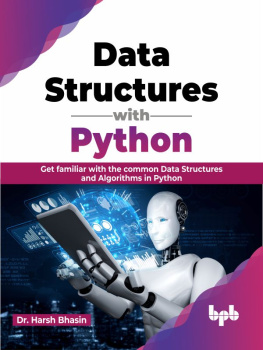
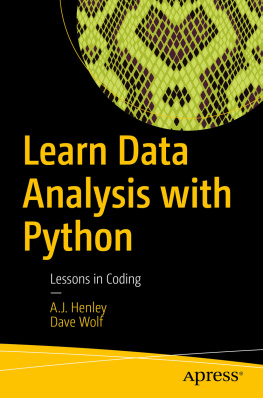
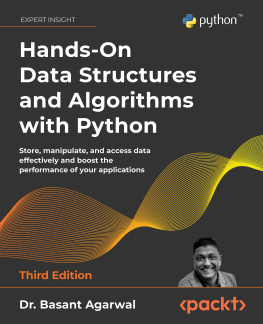

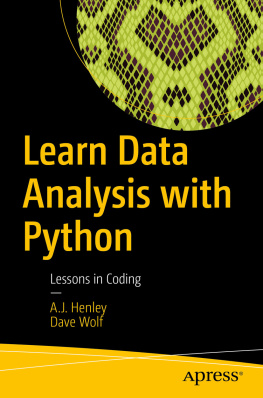
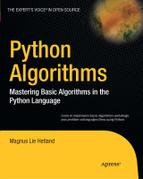
![Magnus Lie Hetland [Magnus Lie Hetland] - Python Algorithms: Mastering Basic Algorithms in the Python Language, Second Edition](/uploads/posts/book/124062/thumbs/magnus-lie-hetland-magnus-lie-hetland-python.jpg)
